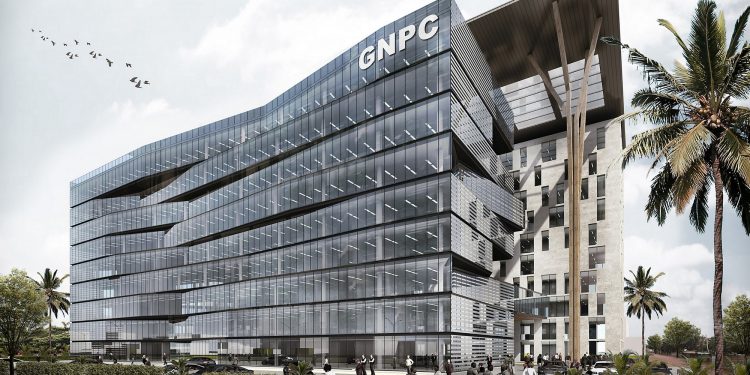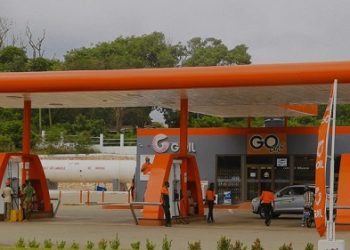Some groups, including the Ghana Gas Senior Staff Association (GGSSA), and civil society organizations (CSOs) in the extractive sector, have rejected the Parliamentary report on the gas sale agreement between the Ghana National Petroleum Corporation (GNPC) and Genser Energy Ghana Limited (GEGL), days after it became public.
It would be recalled that the Parliamentary Select Committee on Mines and Energy, in its report following a probe of the issue, said there was no evidence of any losses, thereby noting the claims of irregularities to be unfounded.
The investigation was initiated in response to claims made by the African Centre for Energy Policy (ACEP) and the IMANI Center for Policy and Education in July 2022, alleging that the deal incurred a loss of $1.5 billion to the nation.
ACEP and IMANI had said the sole-sourced contract between Genser and GNPC, encompassing a combined gas and pipeline infrastructure agreement stood to benefit Genser more.
“Our analysis revealed that Genser stood to receive $1.5 billion in gas discounts over a 16-year period while utilizing effectively subsidised infrastructure to expand its enclave power projects across the country,” the two CSOs stated.
However, the Committee on Mines and Energy in its report instead said it found that the benefits for Ghana, in the deal, are far exceeding that sum. It noted that the computation methods used by ACEP and IMANI leading to the assumption of the losses were faulty.
‘The CSOs calculated a hypothetical loss based on the contractual sum of $2.79 / metric million British thermal unit (MMBtu). But that price reflects offsets from a capacity charge of $3.29 / MMBtu,’ the report noted.
The report proceeded to say the arrangement rather benefits the country, presenting some 11 key economic advantages associated with the deal, ranging from energy security to job creation, development of future industries, and foreign direct investment.
But this was despite the position of the Ranking Member of the Committee, John Abdulai Jinapor, who maintained that the agreement would lead to significant losses to the state.
Following the publication of the report by a cross-section of the media, GGSSA, one of the key interest groups in the ongoing saga, said they were disappointed in the analysis of the critical issues as captured.
They noted some inconsistencies in the report, which was addressed to the Speaker of Parliament, by the Committee on Mines and Energy.
In a statement signed by the Chairman of GGSSA, Richmond Alamu, the group noted among others that “the summary of Energy Commission testimony was not captured in the report but reference was made to the same under clause 7.3.”
It added, “The submission captured under clause 7.4 is at variance to testimony summary under clause 5.1.8, where it was clearly stated and we quote: “the gas cost GNPC nothing because the gas in question is foundation gas which until 31st December 2022, GNPC pays nothing for the gas.”
While pointing out these discrepancies in addition to providing clarity on the risks and implications for the country, GGSSA stated that it is not against private participation but stands to protect the interest of Ghana and all industry stakeholders.
It maintained that “the main transmission pipelines should not be under the custody of a private player. The gas transmission pipeline is a national security asset/apparatus, just as GRIDCo (national agency) overhead high voltage transmission systems.”
It said the effective planning, management and control of its operations and maintenance is crucial to PPA contracts and complex GSA with various gas suppliers.
Against this background, they argued that, “it cannot be handed over to a 70 per cent owned foreign entity, which does not have a locus under the law to operate and maintain a gas transmission pipeline as regulated by the Energy Commission under Act 541.”
As a result, the group, therefore, called on Parliament to engage global industry experts to untangle the complex situation at hand to guide the energy sector.
Meanwhile, the CSOs also reacting to the report issued by the Parliamentary Select Committee on Mines and Energy, after nearly a year of deliberations, said the report has been crafted with an intent to retrospectively legitimize the deal while downplaying overwhelming evidence that the deal is not in the national interest.
They particularly noted that the chairperson’s conduct raises serious questions about objectivity, integrity and commitment to parliamentary values of accountability and propriety.
“ACEP and IMANI participated in the committee’s proceedings as a gesture of respect for the parliamentary institution. Despite concerns regarding potential bias stemming from media interviews by the committee’s chairperson and some of its members, we chose to put those reservations aside and engaged in good faith. Therefore, despite the committee’s failure to provide its witness with the necessary preparatory guidance, it did not matter; we made an appearance,” a statement issued by the CSOs stated.
ACEP and IMANI, on the back of a detailed argument in support of their position, alleged that the committee’s primary goal was to suppress criticism of the Genser sweetheart gas deal, enabling the unimpeded execution of the atrocious Genser agreement.
“Consequently, Genser has constructed the pipeline to Kumasi, even though GNPC lacks the capacity to utilize any gas molecules currently. As a result, there is a frantic push to incorporate infrastructure costs into the gas price for every consumer,” they stated.
To this end, they added that this approach will lead to elevated electricity costs, further burdening the public, who are already grappling with substantial increases in electricity charges.
Meanwhile, a World Bank report released in July 2022, said close to 850,000 Ghanaians are estimated to have been pushed into poverty on account of larger-than-expected rise in prices.
The report titled, ‘7th Ghana Economic Update: Unraveling Inflation’s Toll on Poverty and Food Security’ found that most Ghanaian households are estimated to have experienced a deterioration in living standards, particularly toward the end of 2022.
According to the report, between September 2022 and June 2023, the Public Utilities and Regulatory Commission (PURC) conducted three quarterly adjustment of electricity tariffs by 27.15 per cent in September 2022, 29.96 per cent in March 2022 and 18.36 per cent in June per month.
The report notes that these adjustments were regressive, and combined with rise in the prices of food and rising inflation, have eroded the purchasing power of Ghanaian households and pushed many into poverty.










Discussion about this post